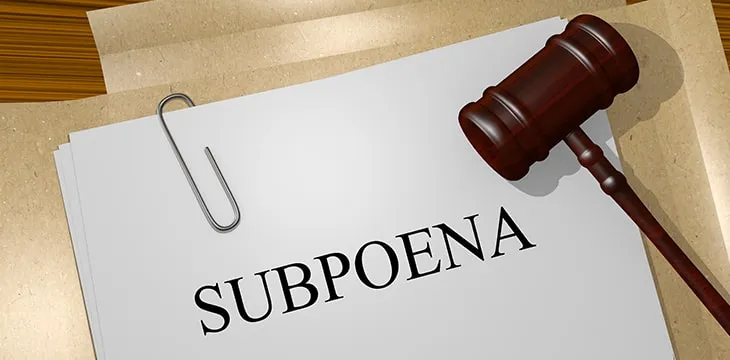|
Getting your Trinity Audio player ready...
|
In a case that has debunked the myth of decentralization and reminded “crypto bros” that hiding behind code won’t save them, the Commodity Futures Trading Commission’s unconventional move to issue summons to Ooki DAO members through a help chat box has been upheld by a California court.
Ooki DAO is a decentralized autonomous organization (DAO) founded to succeed what was previously known as bZeroX. The DAO’s members govern the Ooki Protocol, the successor of the defunct bZeroX Protocol.
As CoinGeek reported, the CFTC alleges that the founders of bZeroX only founded the Ooki DAO to evade regulations. The regulator even claims to have obtained records of a call in which one of the founders claimed that by creating a DAO, regulators will have nobody to pursue as the organization is decentralized.
This belief was shattered two weeks ago when CFTC charged—and settled with—the founders of the DAO. It then filed charges against the Ooki DAO members whom it claims have been offering margin trading and lending services, which only licensed entities are allowed to, while ignoring Know Your Customer (KYC) measures.
The CFTC filed a motion on September 27, asking the Northern District of California to approve the unorthodox channels it had used to issue summons to the DAO members. A CFTC paralegal claimed on the court documents that, unable to find physical headquarters for the DAO, had issued the summons on an online forum and through a help chat box.
“The Motions are GRANTED, and the Court orders that service of process on the Ooki DAO may be made in this action by providing a copy of the summons and complaint through the Ooki DAO’s Help Chat Box, with contemporaneous notice by posting in the Ooki DAO’s Online Forum,” Judge William Orrick stated in his ruling.
Ooki DAO wants the DeFi ecosystem to come to its aid
Ooki DAO members have been scrambling to find the best way to respond to the charges, waking up to the realization that being in a “decentralized” organization doesn’t exempt them from regulations.
Members have been deliberating on the best way to face the charges on the DAO’s online forum. Some have proposed allocating some of its treasury funds to hiring lawyers to represent the DAO. Others want to rope the entire decentralized finance (DeFi) industry to their aid, claiming that the lawsuit will have significant ramifications for the rest of the industry. Some have also suggested releasing a non-fungible token (NFT) collection, with the proceeds going to the legal defense.
The lawsuit has also attracted a group of digital assets lawyers and developers who have filed a motion seeking to join the case as amicus curiae (friends of the court).
In its filing, the group, known as LeXpunK, claimed that it can “provide the Court with important additional information and perspective with respect to the novel facts at issue here, in a case of first impression dealing with liability for participation in a so-called Decentralized Autonomous Organization or DAO.”
It also attacked the CFTC’s delivery of court summons through the help chat box, stating, “Service by posting on a website, without any additional effort, falls far short of what the Constitution requires.”
The lawsuit comes at a time when the CFTC is inching closer to becoming the official digital asset regulator. Two bills tabled before Congress seek to give it jurisdiction over digital assets, although the Securities and Exchange Commission (SEC) will still wield its power over tokens it considers securities.
Some of the biggest companies in the industry have backed the CFTC, which is believed to take a lighter touch than the Gary Gensler-led SEC.
The latest to back the commodities futures regulator is Coinbase (NASDAQ: COIN), with Head of Policy Kara Calvert commenting recently, “We’re very supportive of two efforts, one in the House, one in the Senate, which would provide spot authority to the CFTC.”
Watch: The BSV Global Blockchain Convention panel, Law & Order: Regulatory Compliance for Blockchain & Digital Assets

 07-13-2025
07-13-2025 





